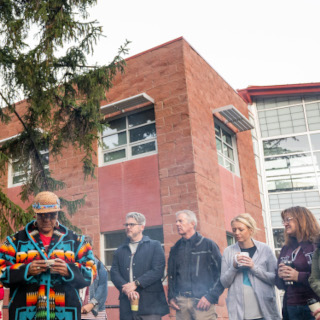Get Involved with Student Groups
ASUM Student Groups
The Associated Students of the University of Montana (ASUM) is the student governing body which strives to empower and advocate for all UM Students. ASUM understands the importance of student groups and has developed nearly 200 ASUM recognized clubs and organizations! Student organizations give you the opportunity to broaden your horizons, learn new skills and meet people who can further your success as you transition from college to the real world. Below you will find a few clubs and organizations which were developed by other Native American students. We also recommend you look at the hundreds of other organizations that ASUM offers by visiting their page here.
American Indian Business Leaders (AIBL)
Purpose: UM AIBL is a student group on the University of Montana campus and we are recognized by ASUM. UM AIBL is dedicated to the campus, Missoula and Native communities. We try to be active in these communities by creating events that cause as much interaction between these communities as possible. We strive to be examples for the young, good peers to each other and leaders in our future professions
American Indian Science and Engineering Society (
Purpose:
Native American Law Students Association (NALSA)
Purpose: To promote the study of Federal Indian Law, Tribal Law and traditional forms of governance and provide support for Native American Law students. The group welcomes Indian and non-Indian students.
KyiYo Native American Student Association
Purpose: To bridge the faculty and students of The University of Montana, through extracurricular activities, we will engage others in our traditions in order to unify and promote the cultural identity of Native Americans.
Purpose: To create viability for indigenous by providing production assistance and community dialogue.
